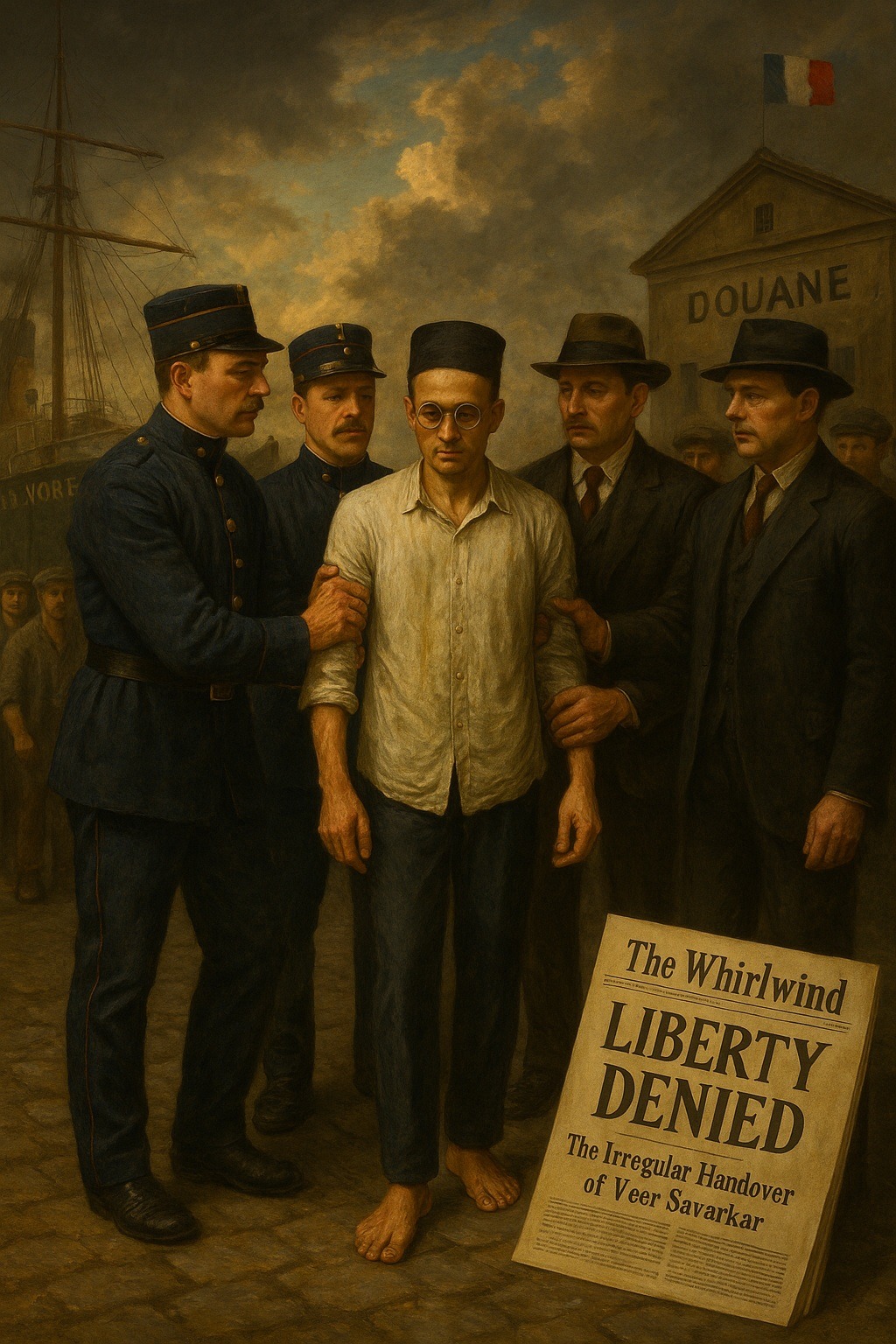In July 1910, Vinayak Damodar (Veer) Savarkar attempted one of the most discussed escapes in the history of anti-colonial struggles. After leaping through a porthole of the British steamer S.S. Morea as it docked at Marseilles, he swam ashore and set foot on French soil – intending to claim political asylum.
The Irregular Handover of Savarkar at Marseilles
At the quay of the Marseilles docks, a confusing situation unfolded. The French police made a hasty and, by many accounts, irregular decision: without hearing Savarkar’s request to be presented before local authorities to state his wish for asylum, and without initiating any formal extradition procedure or legal review, they handed him back into British custody.
From Hope to Disillusion
According to critics, this was no mere procedural oversight but a profound breach of international law and justice. Sovereign France — celebrated for its revolutionary ideals — became the very soil where those ideals were denied to a man deeply involved in the freedom struggle of his own nation. For Savarkar, this was a bitter experience. Already disillusioned by British justice after his rejected bail at Bow Street Court in London, the Marseilles handover further undermined his faith in the universal principles of liberty and the legal validity of international law.
From Dockside to The Hague
The decision made on the Marseilles quay did not end there. The irregular handover of Savarkar immediately provoked an international controversy. The French government, embarrassed by what appeared to be a violation of its sovereignty, referred the matter to the Permanent Court of Arbitration at The Hague. The proceedings became known as the Savarkar Case (1911), illustrating how a single decision by local officials could escalate into a wider diplomatic and legal dispute.
For Savarkar himself, however, the outcome was already determined. His bid for freedom ended in forced return to British custody, symbolizing both the extensive reach of the British Empire and the precarious nature of justice under colonial rule.
Final Thoughts
Savarkar’s re-arrest on French soil highlighted the role of European powers in sustaining British authority in India. More broadly, the episode exemplified the limitations of international law when confronted with the political imperatives of powerful imperial states. For Savarkar, the Marseilles episode underscored the subordination of legal principles to imperial interests and reinforced his disillusionment with the promise of international law.
💭 What do you think? Do you think Savarkar’s faith in international law was misplaced, or did the system fail him? Was France guilty of betraying its own revolutionary ideals by handing Savarkar back without due process? Do moments like Marseilles show the limits of law when confronted with imperial power?
👉 Share your thoughts in the comments below!
Sources:
KEER, Dhananjay. 1988. Veer Savarkar. Third Edition. (Second Edition: 1966). Popular Prakashan: Bombay (Mumbai).
SAMPATH, Vikram. 2019. Savarkar (Part 1). Echoes from a forgotten past. 1883-1924.Penguin Random House India: Gurgaon.


Leave a Reply